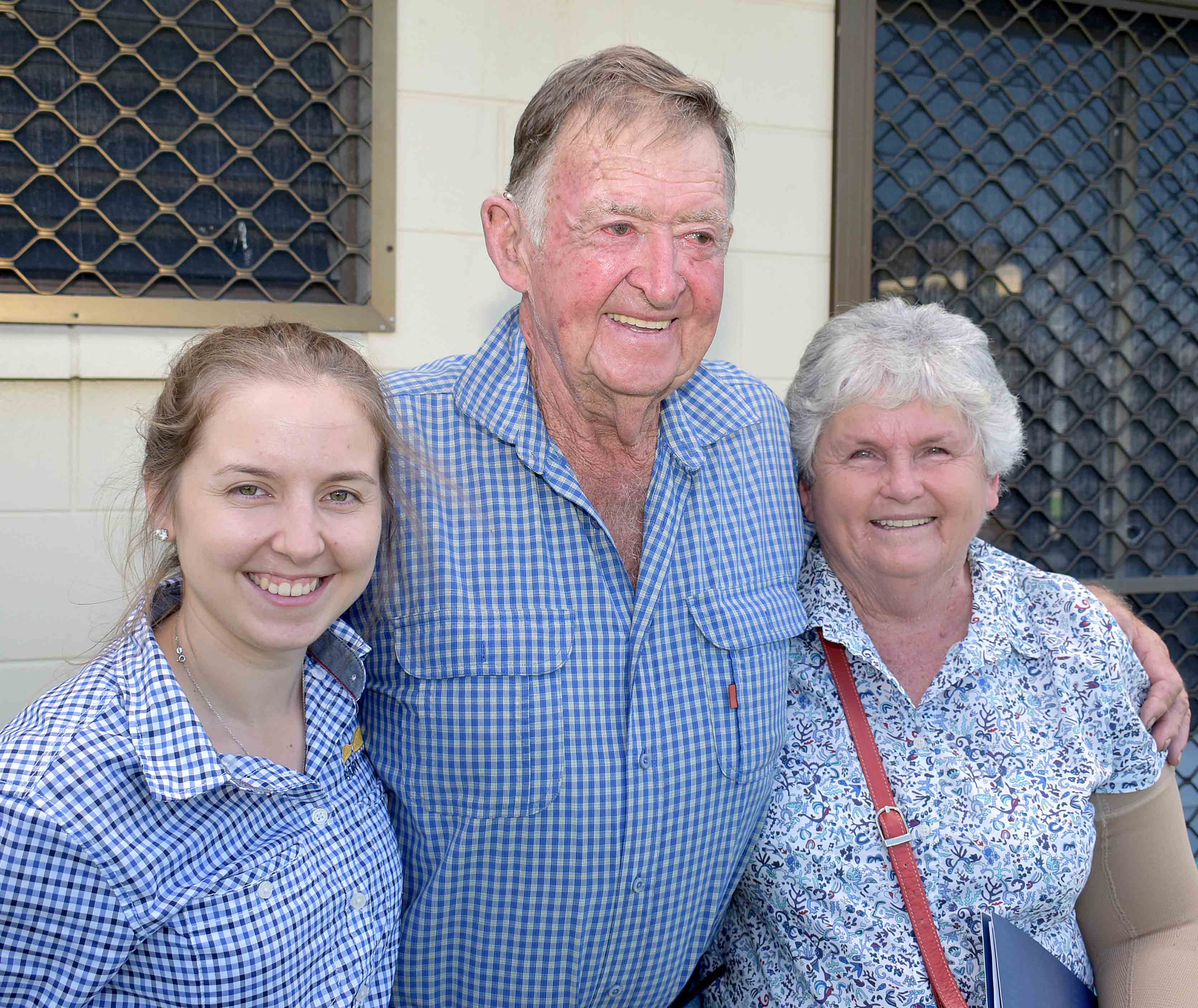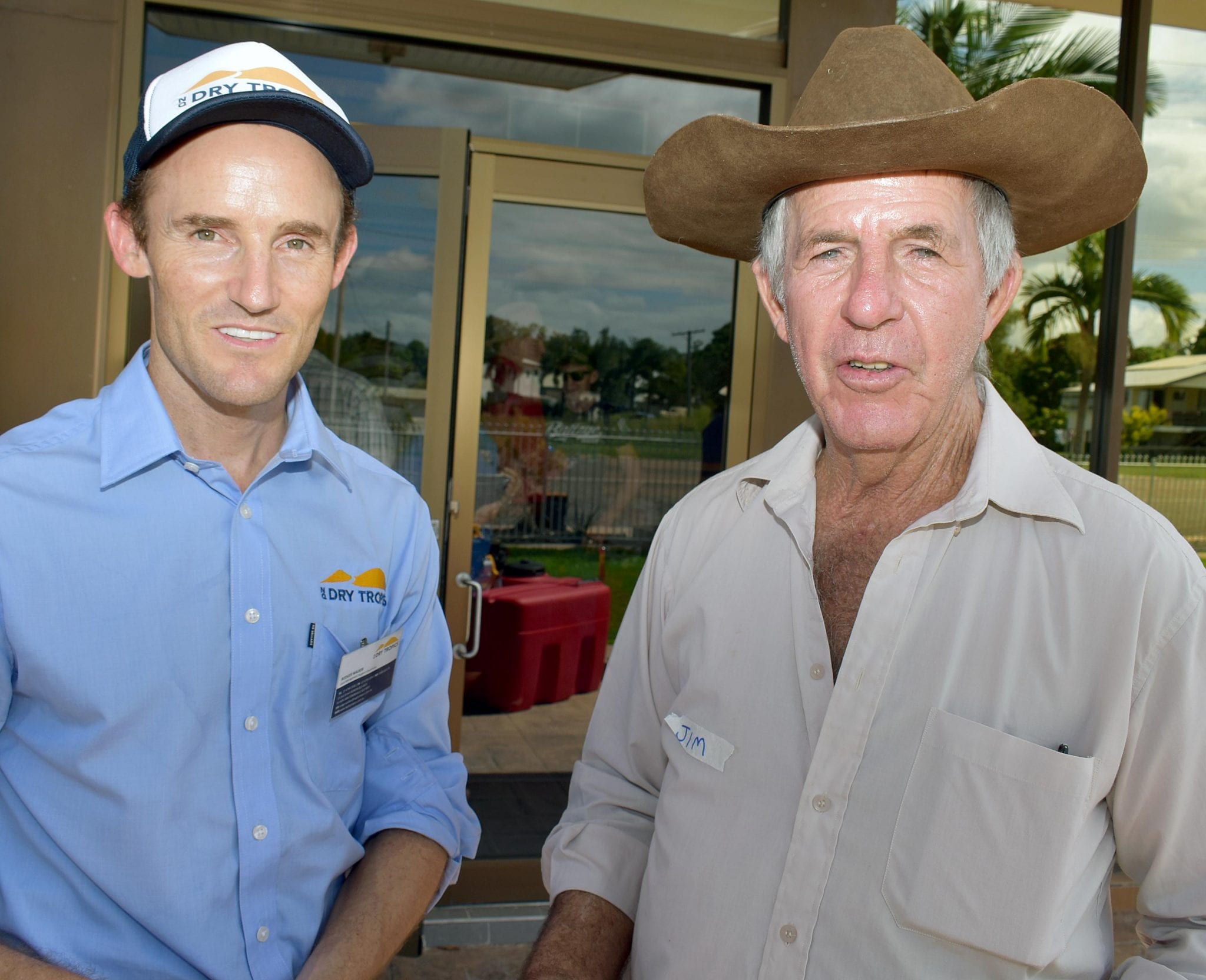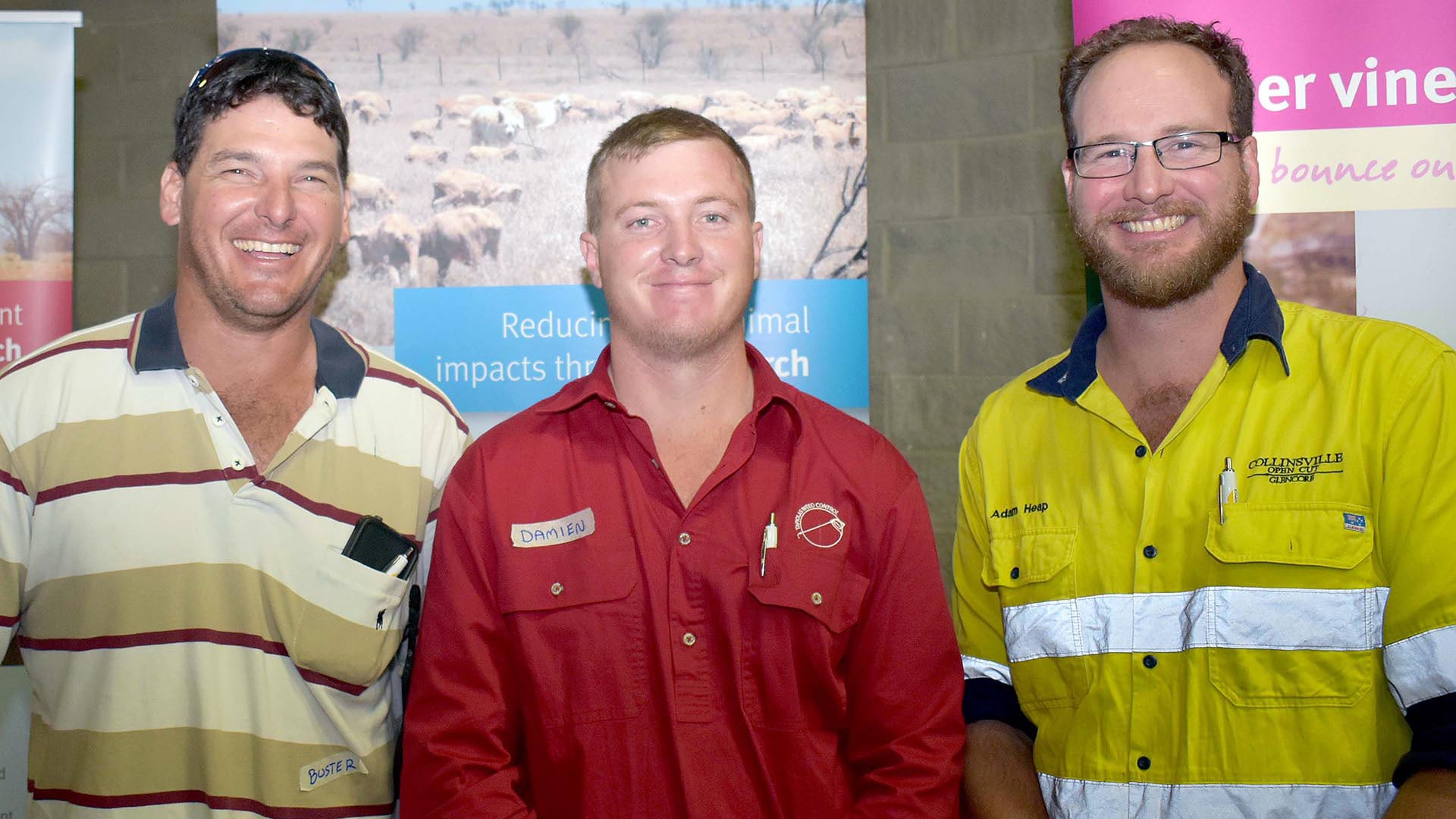Regional Pest Management Project Officer Rachael Payne (left) with Errol and Carmel Comerford, Turrawulla Station.
Landholder Driving Change Land Management Support Coordinator Rodger Walker (left), and Jim Hillier, of Glenmore Station, at the Dry Tropics Pest Advisory Forum held at the Collinsville Community Centre in March.
[wd_hustle id=’land-access-review’ type=’popup’]Published details[/wd_hustle]
Calls for contractor land access review
LAND access laws for government agencies and utility companies who access properties in North Queensland must be strengthened to safeguard farmers’ best interests, graziers say.
More than 60 graziers and industry leaders recently attended a pest Advisory Forum in Collinsville, where they raised concerns about biosecurity risks associated with outside bodies accessing grazing land.
They said groups who maintain power transmission lines, roads, rail lines, national parks, solar farms and coal mines had an obligation to maintain best-practice principles to reduce biosecurity threats.
But grazier Buster O’Loughlin said there was little graziers could do but request that those accessing their land comply with biosecurity requirements, and said he would like to see tougher land access protocol guidelines.
“We have energy distribution network service providers come onto our place and we can’t legally do anything about it apart from insist that they comply with our biosecurity requirements, to wash down their vehicles upon entering and leaving our property,” Mr O’Loughlin said.
“And that’s if we know what day they plan to enter our property.
“It’s near impossible to prove that someone else brought pest weeds onto your land, it’s time for all land managers to get a bit more fair dinkum about closing the risk.
Buster O’Loughlin, Exevale Station (left), Damian Tapiolas, Tapiolas Weed Control, and Glencore (Collinsville) Senior Environment and Community Adviser Adam Heap (right).
“The annual financial cost to me as a grazier to manage and prevent weeds is enormous, and it’s frustrating when you know another vehicle, not owned by the property, introduces pest weed. It’s a vicious cycle,” he said.
Grazier Carmel Comerford and her husband Noel own Turrawulla Station, near Nebo, and are also part-owners of a property at Collinsville.
She said graziers should be given more rights to better control those accessing their property.
“We should be able to control the people that come on our land better, and contractors need to be made more accountable for weed control, especially vehicle weed control,” Mrs Comerford said.
“Weeds are a huge cost to our business. They put our agriculture, our environment, and our livelihoods under pressure,” she said.
NQ Dry Tropics’ Landholders Driving Change (LDC) and the Burdekin Dry Tropics Regional pest Management Group hosted the forum in a bid to better coordinate engagement between government agencies, utility companies and landholders on biosecurity awareness, policy and regulatory issues.
LDC Land Management Support Coordinator Rodger Walker said the forum gave graziers an opportunity to comment and connect on local biosecurity concerns.
“The Landholders Driving Change project has committed to coordinate further engagement between government, land managers and landholders on biosecurity issues,” Mr Walker said.
“Our initial plan is to progress further with Whitsunday Regional Council about the possibility of the LDC investing in a community washdown facility.
“There isn’t one in the BBB region and in the interests of working with the whole community to achieve long-term economic, social and environmental benefits, we see this as a much needed and long overdue outcome.
“We also intend to hold further discussions with those who maintain power transmission lines, local and main roads, rail lines, water pipelines, national parks and coal mines.
“Ideally we can bring them and landholders together to find mutual agreement and goodwill about how to better apply best management practice in relation to on-farm biosecurity,“ he said.



